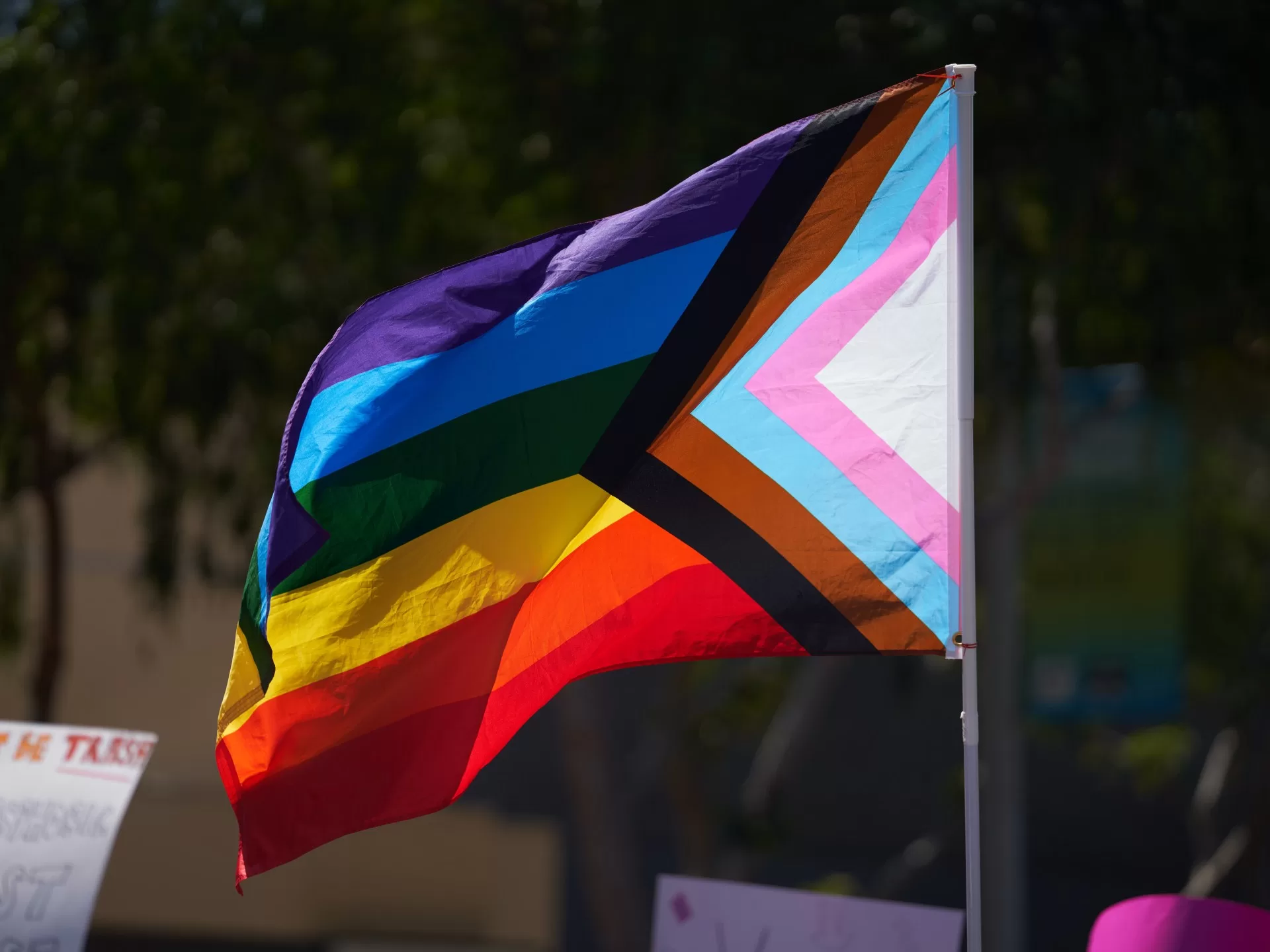In recent decades, so-called “sex workers’ rights” campaigners working to decriminalise pimping and buying of sex have attached themselves, just like trans rights activists, to the movement for the rights of same sex attracted people. This was a logical – and highly beneficial – move on their part. Being seen as part of a proud, widely-respected social justice campaign undoubtedly helps their efforts to perpetuate the myth that “sex work is work” and “prostitution is liberating”. Their acceptance into what came to be called the “LGBTQ+” movement, however, has been incredibly harmful to the most vulnerable members of society, and especially children.
Recently in California, for example, so called LGBTQ+ activists have successfully mounted opposition to planned increased penalties for adults soliciting sex from prostituted children.
In April this year, Republican Senator Shannon Grove put forward a bill that would have made soliciting a minor for sex, or agreeing to engage in any form of commercial sex with a child, a felony offence, carrying a mandatory jail time and a requirement for sex offender registration for repeat offenders.
“The crime of purchasing a child, of any age, for sex in the state of California should be a prison felony,” said Grove. However, LGBTQ+ activists, opposed the bill citing concerns about “unintended consequences”. They claimed that increased penalties for those who abuse minors caught up in the sex trade will affect the LGBTQ+ community “disproportionately”.
“We are particularly concerned that the harsher penalties proposed in this bill will disproportionately impact marginalised communities, especially members of the LGBTQ+ community, who already suffer from systematic biases within the criminal justice system, particularly when it comes to sexually based offenses,” argued Grove’s opponents while addressing the Public Safety Committee about the changes they want to see in the proposed bill.
You might think that harsher penalties for buying and selling children for sex should be a no-brainer, but these activists argued that “studies have shown that LGBTQ+ people, particularly gay and transgendered individuals, are more likely to be charged with sex offences compared to their heterosexual counterparts”. They went on to state that “LGBTQ+ individuals are nine times more likely to be charged with sex crimes, and are thus more likely to be incarcerated – which will in turn lead to increased difficulties in finding housing and employment.”
Frankly, who cares? Why on earth should an exception be made for LGBTQ+ identified abusers? Do children suffer less when they are used and abused by someone who claims to be a victim of discrimination themselves, for whatever reason?
In the end, Public Safety Committee made several amendments to Grove’s bill to please these activists that significantly weakened it.
The amended bill allows for soliciting children aged 16-17 to be punished as a felony only when it can be proved that the minor in question was a victim of sex trafficking, and gives the judges discretion to charge those accused of soliciting children 15 and under either with a misdemeanour or a felony depending on circumstances. Further, under the amended bill, a felony conviction for soliciting children carries possible – not mandatory – jail time. Requirement for sex offender registration for repeat offenders is also optional.
The bill needs to go through several more hurdles before it is enacted. Many fear it will be further watered down and deemed completely useless by the time – if ever – it becomes law.
Who would have thought that in the US state of California, it would be this difficult to protect children from men wanting to purchase them for sex?
And why is the California LGBTQ+ community trying to frame soliciting of children for sex as part of a sexual identity rather than a depraved, inexcusable crime? Shouldn’t it be a source of shame, rather than a line of advocacy, that some members of the community – namely gay men – seem to be affected disproportionately by efforts to stop people from buying sex from prostituted minors? Shouldn’t these activists focus their energy on stopping gay abusers of children rather than trying to shield them from consequences of their harmful actions?
Since the inexplicable expansion of the movement for the rights of same sex attracted people to include “sex work” advocates, I have increasingly witnessed efforts to frame prostitution as an expression of sexual identity rather than abuse of the most vulnerable in our society, including children. Today, the movement seems to be opposing common sense efforts to protect children by claiming prostitution, and specifically under-age prostitution, is an integral part of gay male culture and anti-prostitution measures are being coopted to entrap and criminalise “queer people”.
This is unacceptable. Defence of prostitution under the ever widening umbrella of the LGBTQ+ movement harms women and children, and makes it increasingly difficult to protect them from abusers. Further, it feeds into the age old efforts to equate male same sex attraction with child abuse.
The arguments around prostitution needs to be reframed, both within the LGBTQ+ movement and in wider society, so that we can all see the sex trade for what it really is: the oldest oppression.
That people are advocating for decriminalisation of prostitution, and lenient sentences for those who buy sex from minors, in the name of protecting the rights of gay and trans-identified men, means something has gone terribly wrong with the movement for lesbian and gay rights. However it is dressed up, this is nothing more than child abuse apologism. It should be countered, for the benefit of children as well as lesbians and gays who want the movement for their rights to be urgently divorced from harmful prostitution advocacy.
The views expressed in this article are the author’s own and do not necessarily reflect Al Jazeera’s editorial stance.
